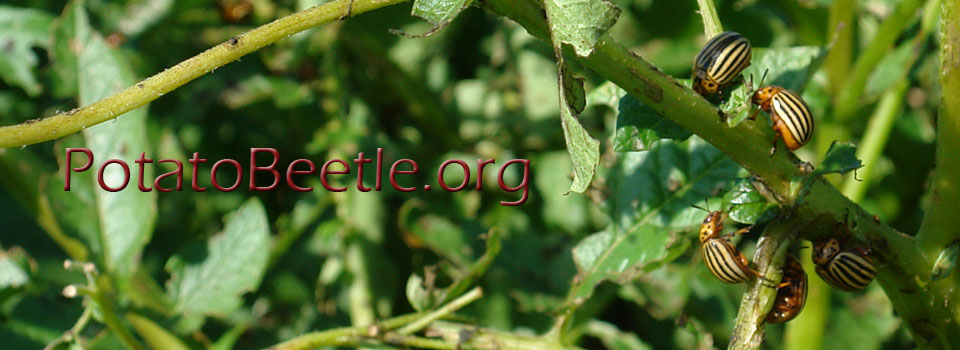Naqqash, M. N., A. Gökçe, E. Aksoy, A. Bakhsh. Chemosphere, https://doi.org/10.1016/j.chemosphere.2019.124857
Colorado potato beetle, Leptinotarsa decemlineata Say (Coleoptera: Chrysomelidae), is the important pest of potato all over the world. This insect pest is resistant to more than 50 active compounds belonging to various chemical groups. Potential of RNA interference (RNAi) was explored to knock down transcript levels of imidacloprid resistant genes in Colorado potato beetle (CPB) under laboratory conditions. Three important genes belonging to cuticular protein (CP), cytochrome P450 monoxygenases (P450) and glutathione synthetase (GSS) families encoding imidacloprid resistance were targeted. Feeding bio-assays were conducted on various stages of imidacloprid resistant CPB lab population by applying HT115 expressing dsRNA on potato leaflets. Survival rate of insects exposed to CP-dsRNA decreased to 4.23%, 15.32% and 47.35% in 2nd, 3rd and 4th instar larvae respectively. Larval weight and pre-adult duration were also affected due to dsRNAs feeding. Synergism of RNAi with imidacloprid conducted on the 2nd instar larvae, exhibited 100% mortality of larvae when subjected to reduced doses of GSS and CP dsRNAs along with imidacloprid. Utilization of three different dsRNAs against imidacloprid resistant CPB population reveal that dsRNAs targeting CP, P450 and GSS enzymes could be useful tool in management of imidacloprid resistant CPB populations.
